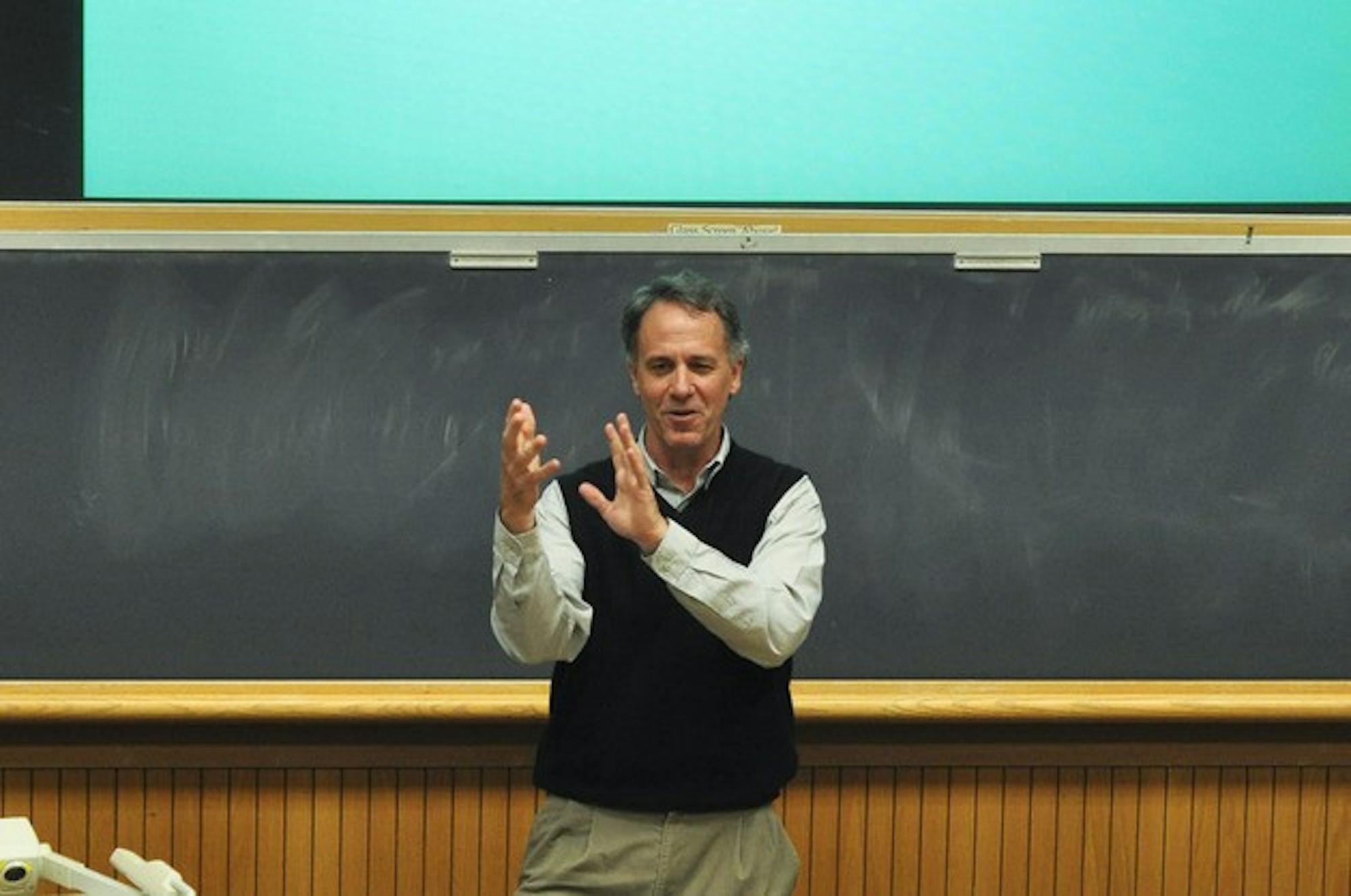Nigerian society's reaction to the spread of the HIV/AIDS epidemic is closely tied to the power dynamics that underpin many of the country's customs, according to Smith.
"If one looks at the social response to the epidemic, one gets a really revealing window onto processes of social change more broadly," Smith said. "AIDS is situated in this really interesting way right at the nexus between inequality and morality."
In Nigeria, perceptions of the disease and those who have contracted it have evolved along with changing societal dynamics, according to Smith. Before HIV/AIDS proliferated around the country, many Nigerians thought it was a mere money-making ploy created by elites, he said. Some citizens even viewed the disease as a version of the "419" scam in which a message sent from a foreign email account promises large profits in exchange for bank information that was simply "cloaked in humanitarianism," Smith said.
Public health campaigns to prevent the spread of AIDS through the encouragement of abstinence and other "moral" sexual behavior have ironically propagated risky sexual behavior and have unintentionally created a stigma surrounding condom use, he said.
"[Abstinence programs] push people to try to construct their sense of their sexual relationship to themselves, to their partners and to others as moral in ways that can then prevent them from doing things that can protect themselves," Smith said.
Condom usage has acquired an extremely negative connotation in many Nigerian communities due to various public health campaigns that advertise abstinence as the only available moral option, he said.
"To use a condom is to say, I'm a risky person, I'm a sinful person,'" Smith said. "Or for a woman to suggest that she use a condom with a man is to say, I'm the next thing to a prostitute you need to use a condom with me because I might give you AIDS.'"
Although popular and academic Western discourse often considers non-governmental organizations to be more trustworthy than local African government agencies, corruption is equally pervasive in the non-profit sector, Smith said.
In a society plagued by inequalities, Nigerians often believe that corruption is the only way to achieve their moral, political end economic goals, even when they recognize that a system of corruption is detrimental to their interests, according to Smith.
Throughout his lecture, Smith offered three examples of non-profit groups working to prevent and treat HIV/AIDS in order to illustrate the divide between corruption that is overlooked and corruption that is viewed as unacceptable. In some instances, citizens ignored patronage and financial corruption as long as the organizations treated their staff well, while in other cases, the local community protested against the conspicuous consumption of the director of United Against AIDS a Western non-profit that works to combat AIDS likely because he failed to engage in "patronage politics," Smith said.
The prevalence of corruption among Nigerian NGOs has undermined the credibility of the Nigerian non-profit sector as a whole, rendering even effective efforts suspect, Smith said.
Since Nigerians continue to trust the intentions of Western donors, Westerners should take advantage of their influence to reform Nigerian relief organizations, according to Smith. This influence on Nigerian institutions remains as a "strange legacy of colonialism," he said.
Smith's lecture, "AIDS, NGOs and Corruption: Inequality, Morality and Patronage in Contemporary Nigeria," took place in the Rockefeller Center and was sponsored by the anthropology department, the African-American studies department and the Rockefeller Center's Classroom Improvement Grant.




